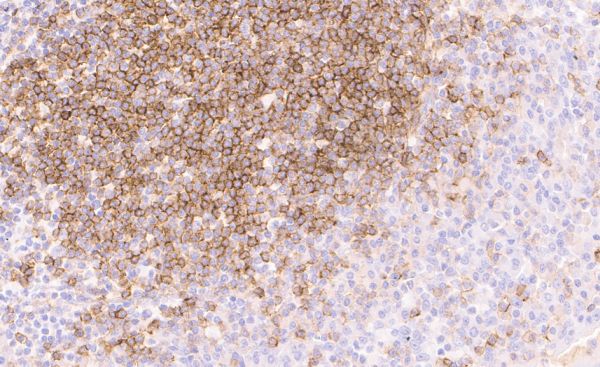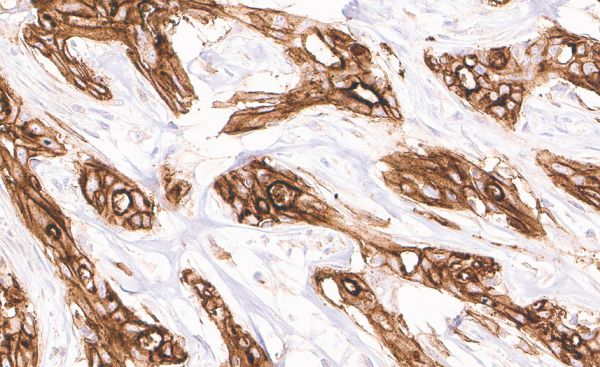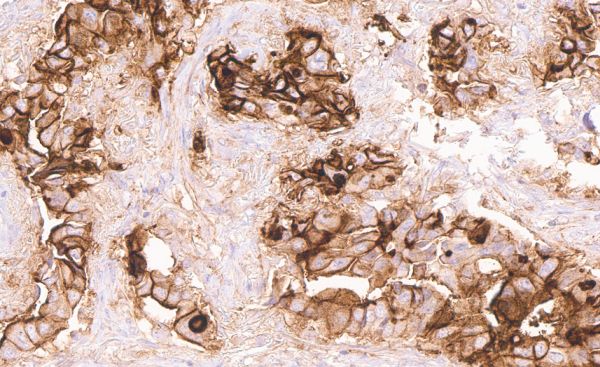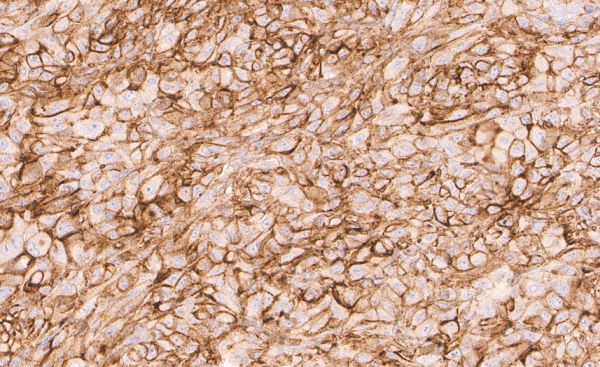Anti-CD73 (Hu) aus Maus (KK3) – unkonj.




-
Übersicht
Artikelnummer DIA-KK3 Spezifität Spezies-Reaktivität Immunogen Wirtsspezies Isotyp Klon Klonalität (Mono-/Polyklonal) Anwendung Immunhistochemie (IHC), Immunhistochemie (Paraffingewebe), Western Blot
Konjugation Verdünnung Format 0,05% NaN3, 2% BSA, gereinigter Antikörper (aus Kulturüberstand), in PBS (pH 7,4), Lyophilisat
Produktlinie / Thema Zweckbestimmung Temperatur - Lagerung Temperatur - Transport Suchcode Hersteller / Marke Uniprot_ID Gene_ID Alias 5-NT, 5-Nucleotidase, 5'-Nucleotidase, 5'-Nucleotidase, Ecto, E5-NT, E5NT, EN, ENT, NT5-E, Nt5e
- Datenblätter und Downloads
-
Weitere Produktinformationen
Clone KK3 has been developed and validated specifically for the immunohistochemical (IHC) detection of CD73 in routine FFPE human tissue specimen. Given the broad expression of ectonucleotidases and adenosine receptors, immunohisto-chemical (IHC) application of monoclonal antibody KK3 may help to develop a better understanding of cell- and tissue- specific roles.
CD73 and CD39 are cell surface enzymes that catabolize the breakdown of extracellular ATP into adenosine. As ectonucleo-sidases they play important roles in maintaining tissue and immune homeostasis through interfering with the extracellular purigeneric pathway. Since several labs independently have demonstrated an immunosuppressive role of CD73-adenosine in cancer, the CD73-adenosine axis has emerged as one of the most promising therapeutic targets in immuno-oncology.
Adenosine triphosphate (ATP) is the major source of energy for the cell. Malignant cells can release high levels of ATP (e.g. after damage by radiotherapy or chemotherapy). Extracellular ATP provokes inflammation by driving "purinergic signals&rsquo and plays a significant role in promoting anti-tumor responses. Many tumors express the ectonucleotidases CD39 and CD73 to scarve such proinflammatory mediators and generate immunosuppressive adenosine nucleosides.
-
Bilder

CD73 immunohistochemistry in a tonsil. 
Strong homogeneous CD73 immunostaining in a cholangiocellular carcinoma of the liver. 
Membranous CD73 immunostaining in an adenocarcinoma of the lung shows apical predominance. 
Prominent membranous CD73 positivity in a malignant melanoma.
